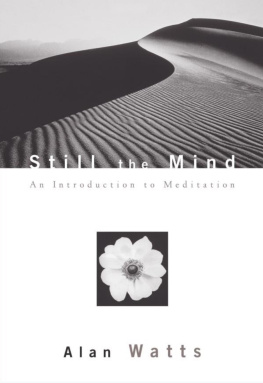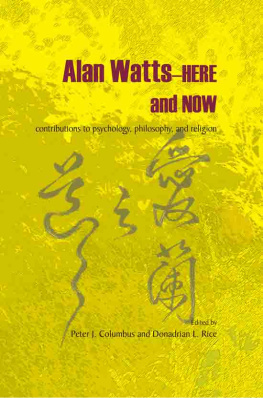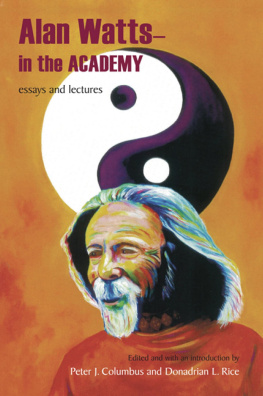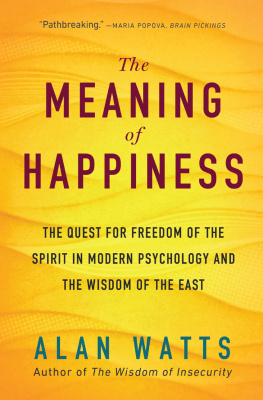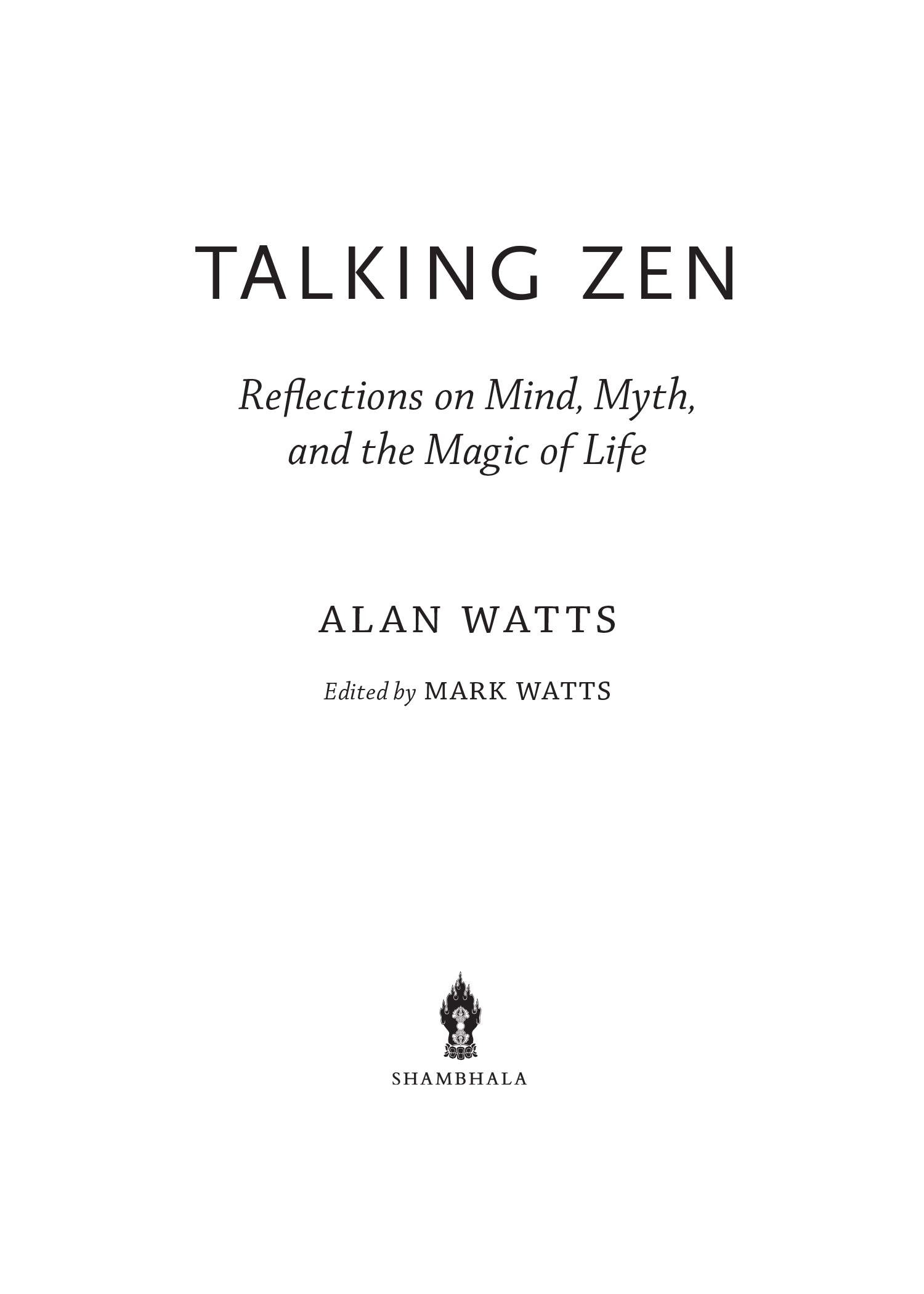Introduction
In 1937, the twenty-one-year old Alan Watts wrote in an article entitled What Is Zen?:
The word zen is the Japanese equivalent of the Chinese chan, which is evolved from the Sanskrit dhyanausually translated as meditation. But it does not mean meditation as the word is usually translated in the West. It is less a contemplative exercise undertaken in solitude than a constant attitude of mind. It places no reliance on scriptural authority, on rites and ceremonies, and it had no dogmas or orthodox body of doctrines. Strictly speaking it has no teachings as we understand them; it is a practice rather than a theory. Creeds and doctrines are ideas about truth, and not truth itself, and the aim of Zen is to sweep away all formulae, symbols and doctrinal substitutes which stand between the individual and enlightenment.
Therefore its methods are, to Westerners, somewhat alarming and seemingly irreverent. It makes fun of logic; it turns metaphysics and theology upside down to make them look absurd. Its technique is to jolt and shock people out of their intellectual ruts into the highway of spiritual freedom. Thus a religious question will often be answered with the most commonplace observation as to the state of the weather, or even with rough treatment such as a slap on the face or an extraordinary statement which appears to mean nothing. For Zen is a religion of life, not a religion about life.
What Is Zen? was written just a year after publication of The Spirit of Zen in 1936. The Spirit of Zen was the first of two books on Zen Buddhism by Watts. His second, The Way of Zen, played a key role in introducing millions of Western readers to Eastern thought in general, and to Zen in particular. Prior to 1940 Watts had also begun to speak publicly, at gatherings of the Buddhist Lodge in London and before other religious study groups in Britain. His first lectures, some of which appear in the early chapters of this work, were prepared well in advance, and in their written form exhibit a style distinguishable from his written works of the period. By 1950, however, Watts had become more comfortable as a speaker, and he rarely used more than a few general notes of subject areas to be covered. By 1960 he had mastered the ability to speak extemporaneously for hours on end, often weaving together the ideas of cultures separated by thousands of miles and many centuries. By the time of his passing in 1973 Watts had authored more than twenty significant books on comparative philosophy and recorded hundreds of hours of public lectures and seminar sessions. Today many of his books remain in print and his lectures are heard on public radio across the country on The Love of Wisdom series.
The following chapters present a synthesis of Alan Watts further explorations of Zen that have been adapted from spoken word archival recordings. This is not primarily an account of how Zen evolved but is instead a story of Zen in life, of insights, tales, and experiences as they were told by the author to live audiences over a period of nearly forty years. In selecting the lectures to be included I chose the talks that embodied the spontaneous and uncontrolled aspect of Zen most fully, and which left me with a compelling feeling that something extraordinary had happened. My thanks to my associate editor Dan Johnson and to Jeffrey Hunter at Weatherhill for their assistance in the challenging endeavor of translating moving performances into written pages.
Picture Without a Frame is the earliest known Alan Watts lecture text, probably delivered before the Buddhist Lodge in London, circa 1933.
The Psychology of Acceptance was delivered in 1939 before the Analytical Psychology Club in New York.
Mythological Motifs in Modern Science is another lecture text, probably from the early 1940s.
Time and Convention: Five Broadcasts were originally broadcast over KPFA in Berkeley, California. This collection of original lecture texts, from broadcasts made in late 1954 and early 1955, was privately published in 1955.
Biting an Iron Bull is the first session from a seminar entitled Inevitable Ecstasy, given aboard the S.S. Vallejo moored in Sausalito, California, in 1971.
Taoist Ways was the first session from the Taoism seminar at Esalen in Big Sur, California, recorded in June 1965.
Swimming Headless is the text of the second session at the same seminar.
Zen Tales is a lecture from the Japan Seminar, given to a small group on tour in Japan in the autumn of 1965.
Zen Bones was a zenefit lecture given on March 9, 1967, at the Avalon Ballroom in San Francisco to raise funds for the purchase of the Tassajara Zen Center.
Mark Watts
Picture Without a Frame
The mind of man makes sense out of life by looking at it through frames. Within limits, something can be achieved: right and wrong can be laid down; success and failure can be determined; important and unimportant can be distinguished. By constructing a frame whose boundaries are birth and death, we can, within those limits, live out a life that appears to be meaningful and to accomplish something in terms of time. But a strange disquiet arises when we look outside the frame, for before birth we are not, and after death we leave only brief memorials. Frames are the very substance of rational knowledge, for we handle our experience of the world by putting it into classes. What is is defined by the frame that distinguishes it from what is not, and vice versa. Motion is defined by the frame that separates it from stillness, so that if the frame be removed and we find ourselves in a world where all is in motion, the idea of motion ceases to mean anything. This is why the logicians say that there cannot be a class of all classes, a frame including all framesfor a frame with nothing at all outside its edges would not be a frame. It would be as inconceivable as the color of the eyeballs lens.








